- Author Jason Gerald gerald@how-what-advice.com.
- Public 2023-12-16 10:50.
- Last modified 2025-01-23 12:04.
It is undeniable, mathematics can be a complicated thing. You need specific time for practice to be successful in studying and reviewing math material or exams. Take your time to study alone or with a group. With persistence, practice, and time, you can make progress in math.
Step
Method 1 of 3: Working on a set of questions
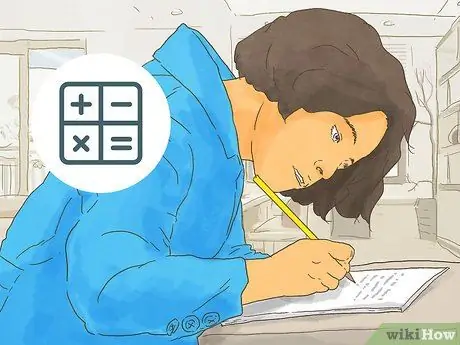
Step 1. Write complete answers, even in exercises and homework
In a written math test, you are usually required to “show the steps” used to solve the problem. Writing down each step when solving a problem is also a way to help you understand the process involved. Writing down the steps is a good habit that must be practiced and maintained. You should also write down each step when doing practice questions or writing notes. You'll be grateful you did when you have to apply these steps in the exam. Work through the set of questions carefully and do more practice if necessary.
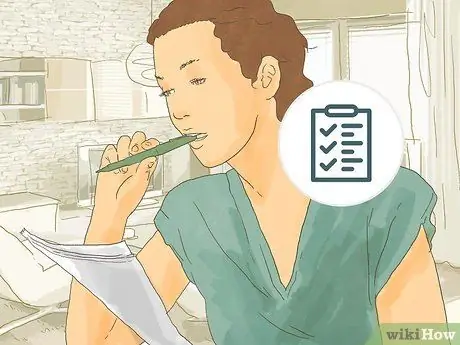
Step 2. Check your work once you are done
Even after finding the answer to a math problem, you may not be done. Enter the answer into the question to see if the answer is correct.
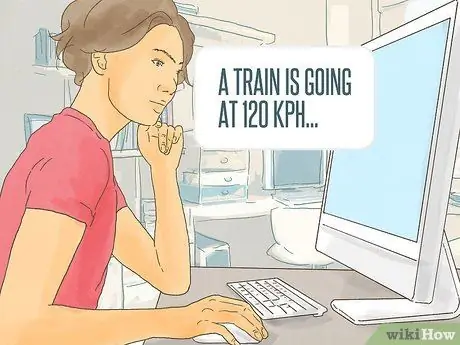
Step 3. Pay more attention to story problems
Story problems are the application of mathematics. You are given a problem situation and must find the right way to solve the problem. This type of problem can be confusing because you have to understand the situation and the math concepts required.
- Carefully read the whole story problem before you solve it. Make sure you understand the problem and the mathematical technique to be used.
- Some questions may include graphs, charts or tables. Also make sure to read it carefully.
- Choose the number you need to solve the problem. Remember that story problems may contain unnecessary details for you to use your understanding to determine what is needed to solve the problem.
- After you solve the problem, be sure to check each step and assess whether your answer is correct, both in terms of size and units.

Step 4. Do your homework, then do more exercises
Your teacher does assign some questions to do at home, but you may have to study more questions if you don't think you really understand. Look for additional sets of exercises in textbooks or the internet, and then try to do some of them until you feel more confident.

Step 5. Try a simulated exam
If you are nervous about a test, practice one more time or even more. Try to recreate the exam atmosphere, create a quiet study space and avoid interruptions. Check back on your work after simulating the exam and study more if necessary.
Ask your teacher if there are practice questions for the exam you can use to study

Step 6. If you can, take advantage of the help of a teacher or tutor
Method 2 of 3: Maximizing Study Time

Step 1. Actively read your textbook
Reading math textbooks is not the same as reading for pleasure. You should think about the goals and objectives of each chapter, and not just read them. You should jot down important information in class and while reading. This method helps you process information and learn later.
- Look and check whether each chapter in the textbook includes a study goal at the beginning, or a summary at the end.
- If you have your own textbook or are willing to pay for a given book, you can highlight, underline or make notes on important formulas, theorems, etc.
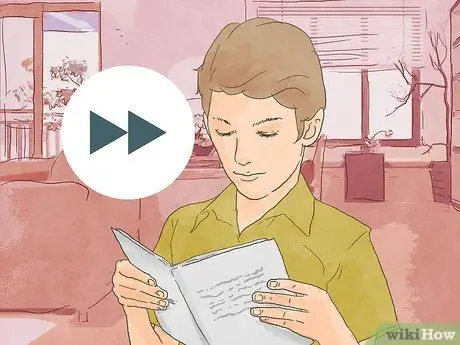
Step 2. Read the rest of the textbook before class if possible
Your teacher can tell the material to be studied next. Reading ahead can deepen your understanding and make it easier for you to follow the lessons in class.

Step 3. Use mnemonics to help remember concepts
Sometimes, some teachers allow you to use copies of formulas, theorems, or other important information when working on problems. Some teachers expect you to memorize them. Either way, learning formulas, theorems or other important information will help you feel more confident. Find a fun way to remember this information.
-
For example, a quadratic formula can be sung to the tune of “Nina Bobo” so you can easily remember it. Try chanting a quadratic formula like:
negative b, negative b,
Add or subtract square root, add or subtract square root,
b squared minus 4 a c, b squared minus 4 a c,
Divide by 2 a, divide by 2 a
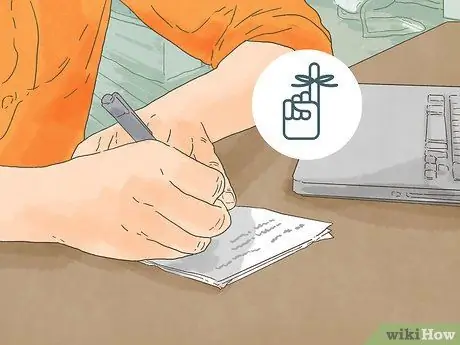
Step 4. Write, mumble, and read aloud the required concepts, definitions, formulas and theorems over and over
Read aloud, slowly at first then faster, and state clearly in your mind. Here you use audio experience, sound memory, as well as visual memory of words and graphic memory (photos, pictures). All of this helps the lesson to be more deeply embedded and stored in your mind.

Step 5. Take enough time to study
Doing homework in a hurry doesn't help you study well. Take it slow and work carefully, especially if you are trying a new type of problem.
If you take a math class in college, for example, take about two hours for each hour you spend in class and use it to do math tasks including learning concepts, terminology, theorems, proofs, etc

Step 6. Refresh your memory before the test
Reread and recall applications, formulas, terms, etc. You will learn piece by piece over time.

Step 7. Try forming a study group
This can be a great way to learn math because you can take turns giving quizzes and checking each other's work. By studying with other people, you can help each other if someone is having trouble understanding a concept or working on a problem. Just make sure you find a group of people who are serious about working on the problem.
Method 3 of 3: Take Class

Step 1. Participate in class
You'll have a hard time keeping up with your lessons if you daydream and don't pay attention in class. Whenever your teacher discusses a problem or explains a concept, pay close attention. Write notes and do practice questions. Be sure to ask the teacher if you have any questions or need further explanation.

Step 2. Practice old skills while learning new ones
Mathematics, like many other subjects, is cumulative. This means that everything you learned earlier is important for learning the next concept. All the skills you learn build on each other. So it's important that you keep practicing.
Try to do a few questions from the material you have studied each time you study. Think of this as a warm-up exercise before trying a new technique

Step 3. Ask for help if you need it
If there's something you don't understand or you're having trouble with a math concept, ask your teacher for help. If there is a tutorial program at your school, local library or elsewhere, take advantage of those facilities as well.
Don't be shy about asking for help. Math can be difficult and you will have to study a lot of material. You should take advantage of all the help so that you understand how to do the problem
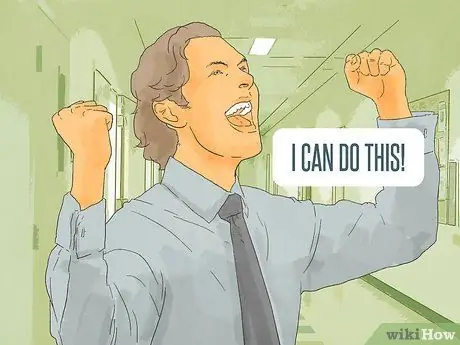
Step 4. Be positive and encourage yourself to succeed
Convince yourself with sentences like: “I can get better at math, I can learn to like it, and I can see the importance of math. I need math for technology, science and prepare for advanced math. I can apply data and formulas in the real world. I can do all of that by trying my best, and I will continue to learn and improve my understanding."

Step 5. Learning math is like learning a language
We all communicate with symbols. Words are symbols. So whatever you write, hear and say has a clear meaning in math. Love your math senses. Math gives you the ability to add up, measure, calculate or describe info in the form of graphs or diagrams with numbers.
Make an effort to listen and talk math. Don't treat math symbols as inactive signs. Pronounce math symbols as words
Tips
- Turn on the energy: Mathematics is energy in electronics, technology, engineering, science, data collection and use (statistics and probability), etc. Math makes sense in context.
-
Don't let negative thoughts keep you from taking the opportunity to do your best. Always use positive thoughts and say to yourself:
I can use my math skills to help other students or cousins, younger siblings or even my children and grandchildren in the future
- When you understand and understand the formulas, skills, and applications of mathematics, they will be stored deep in the brain. Fast learning can refresh and sharpen your brain.
Warning
- Studying concepts in depth at the last minute will only tire you out. Besides, you can only understand the outside. Shallow understanding is not real understanding.
- Quick study in the last hours and in a hurry can leave you restless and confused if your notes or textbook are not clear.
- Avoid relying on a fast study system before a quiz or final exam at school or college.






